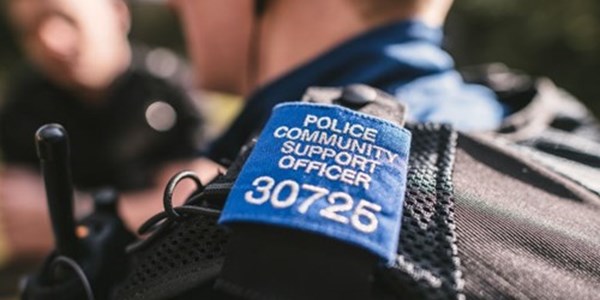Police Community Support Officer (PCSO)
We are not currently open for new applications.
You can, however, still register your interest and we will notify you when we re-open recruitment.

What does a PCSO do?
PCSOs are highly visible and act as a vital link between the public, police, and partners. They carry out patrols, deal with anti-social behaviour, gather intelligence, and resolve community issues. They work closely with local authorities, businesses, and Neighbourhood Watch. PCSOs have various authoritative powers and assist in ensuring communities are safe and protected.

A Rewarding Career
PSCO Bob Bayly
I joined the Army at 15 and worked for 23 years as an Army Signaller. I then spent several years in the private sector as a manager before joining Devon & Cornwall Police as Police Community Support Officer in Plymstock in 2005.
I have enjoyed the last 18 years engaging with my local community, being outdoors, and working on projects to improve the lives of the people of Plymouth. Each day is always different, and the work is exciting and demanding.
I retire this year after 18 years of service, happy with the knowledge that I have made a difference. It has been a rewarding career and one that I recommend.
Positive Action Recruitment Support
We aim to build our workforce to reflect the rich diversity and complexities of our communities by attracting the best talent from the widest pool of people.
We are currently under-represented by women (in police constable, detective constable and special constable roles), people who are Black, Asian or of ethnic heritage, and people who are disabled or neurodiverse. If you fall within one of these under-represented groups, our Positive Action Team can provide support ahead of a recruitment process.
You can find out more and register for positive action support via the link below.
